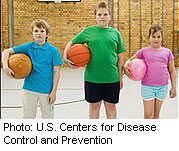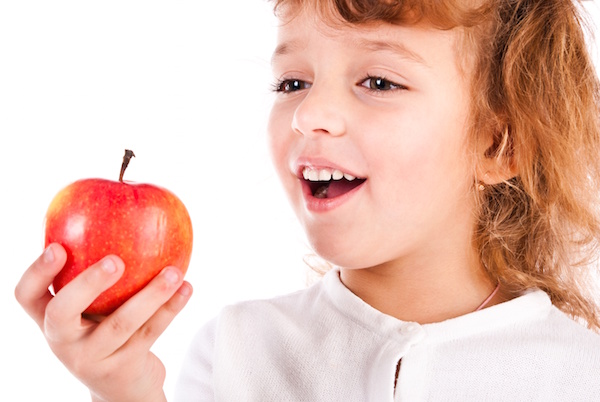
MONDAY, May 28 (HealthDay News) — Could your young child be putting on excess pounds because her friends sit around? A small study suggests it’s possible: Kids seemed to become more active in after-school programs if they hung out with active kids, and the reverse was true, too.
The findings don’t prove that friends directly affect how active kids are, and it’s not clear whether there’s enough of an impact to make a difference in obesity or activity levels throughout the day.
Still, the research raises questions about whether chubbier kids can be influenced by more active peers, said study co-author Eric Tesdahl, a graduate student in Vanderbilt University’s department of human and organizational development. Perhaps, he said, less-active kids could be grouped with more-active ones.
“There’s a pretty good chance that you could make some significant changes based on the social-influence factor alone,” Tesdahl said. This is especially true, he said, since the research suggests kids don’t simply flock to other kids who are like them — active or non-active — but instead are influenced by their peers.
In the study, researchers analyzed 81 kids aged 5 to 12 in after-school programs. Their average age was 8 and most were black or Latino. The researchers followed them over three months, asked them about their friends and tracked their activity levels with devices called accelerometers. They only wore the devices during the after-school programs, which lasted for three hours a day.
The kids appeared to adjust their activity levels to those closest to them. While other research has suggested that kids are drawn to those who are most similar to them in terms of obesity — “obese kids tend to befriend obese kids,” as Tesdahl put it — this study didn’t show that.
“It was much more likely for a child to adjust their activity level to that of their friends than it was for them to not adjust or to go in the opposite direction,” Tesdahl said.
The study found that children consistently increased their activity levels by 10 percent to be more in line with their peers.
Ray Browning, an assistant professor at Colorado State University’s department of health and exercise science, praised the study and said it helps clarify “how relationships affect health-related behavior” even though “it is easy to look at a study like this and say ‘duh.'”
However, he said, the study only looks at a few hours of the day.
In the big picture, he said, it’s “well-established” that peers make a major difference in teenagers when it comes to things like using drugs. But the influence of other kids is not as clear in younger kids.
To make things more complicated, “the friendships of young children are fairly dynamic,” he said. “They’re forming and reforming with some relatively high frequency.”
By contrast, he said, “we tend to think of obesity as more of a chronic condition that we acquire over time. When the friendships are coming and going, you could make the argument that it may have less of an impact.”
The study appears in the June issue of the journal Pediatrics, published online May 28.
More information:
For more on childhood obesity, visit the U.S. Centers for Disease Control and Prevention.

